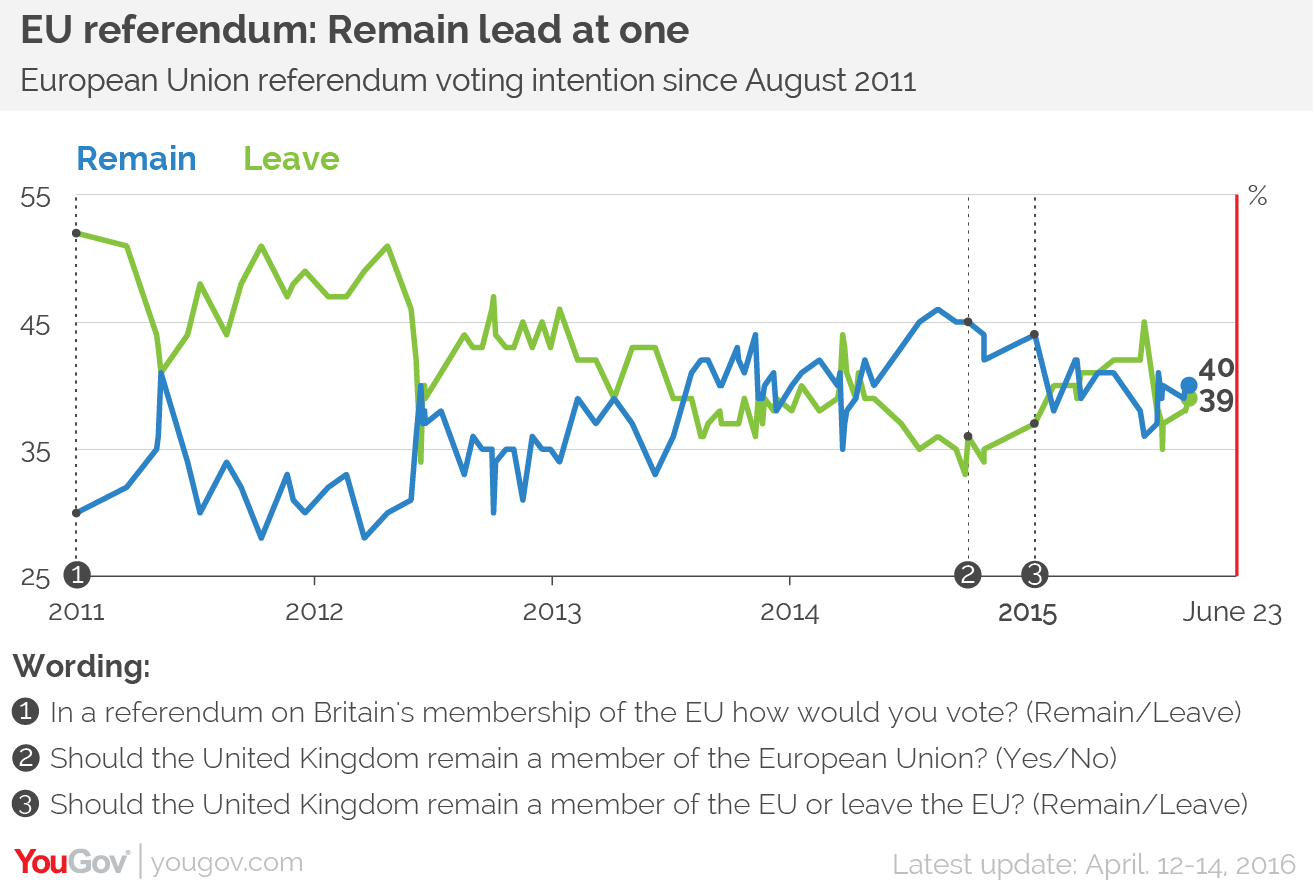The Remain side leads for one point in the Brexit debate - 40% of British people would vote to stay In the EU compared to 39% that would vote for an exit. British people say that if they felt they would personally be poorer they'd decisively support the Remain campaign, YouGov has found.
The EU campaign remains on a knife-edge. Despite Leave being on the back foot since February, Remain are treading water with an average lead of only two in the past six weeks. There is also a stubborn, and significant, proportion of the public who still say they don't know who they will vote for, around a sixth of the population. When everyone is asked how sure they are of the side they will back, the proportion who aren't completely decided rises to 42%.

A new study for Good Morning Britain looks at a large sample of these undecided, or 'swing', EU voters. They are split almost exactly down the middle on which side they lean towards (35% lean towards Remain, 33% towards Leave), ie we find no evidence that undecideds break in any substantial way to the Remain side, as some have suggested.
However, when we pose a crucial question – how would you vote if leaving the EU lowered your income to the tune of around £100 a year? – the effect is to move undecided voters towards Remain to an even greater extent than the population as a whole. The headline one point lead for Remain grows to a solid nine point victory after this qualified question, while a three point lead for Leave among undecideds shifts to a whopping 15 point lead for Remain.
The result reveals the potential for so-called 'project fear', the most popular – and much criticised – strand of argument for Remain in the campaign thus far. The economy is always a concern for voters, and the only real touchpoint with the EU for many. The Remain campaign knows this, and the government's pro-EU leaflet highlights bread and butter economic benefits of EU membership, like ending roaming charges and the impact of EU reforms on flight prices.
But fear can cut both ways, and YouGov polling conducted before and after the Brussels terror attacks in March reveals the potential in this for the Leave campaign. In February only 16% said Britain would be less at threat from terrorism if we left the EU; now the proportion has risen to 25%. Meanwhile, as voters tire of politicians trying to frighten them onto their side, the polling also reveals a positive case for leaving – 32% of voters say leaving would be good for the NHS, while 14% say it would be bad and 33% say it would make no difference.
Full study
© YouGov plc
Key

Hover over the blue highlighted
text to view the acronym meaning

Hover
over these icons for more information

Comments:
No Comments for this Article